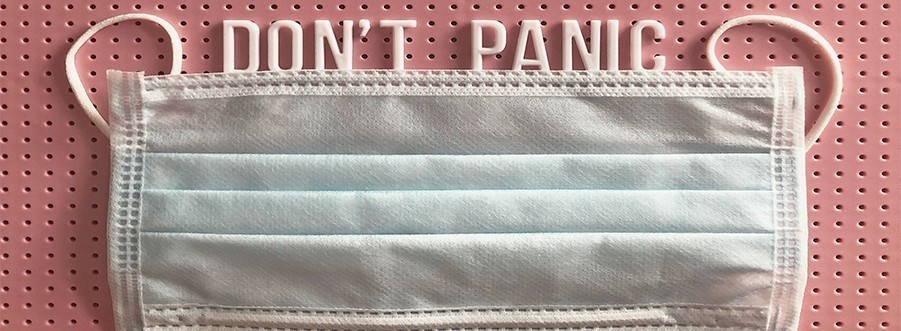
While we are entering the exit phase of the lockdown in various places around the world, a number of issues are still hampering the development of small agri-food companies.
How can we adapt their activities to the current context? How can we reconcile the safety of our employees and the requirements of production? How can we continue to access supplies?
One of the companies that has recently entered its acceleration with ToasterLAB, the Burgundy-based SME So Bag, has shown its ability to be agile in the face of the crisis. Founded in 2012 but Nicolas Chevalier, So Bag is specialised in the production of industrial packaging for the agri-food, pharmaceutical, and chemicals sector.
At the heart of their agile model, a few lessons: anticipate, reassure, play your part and expect the unexpected. We talked to Astrid Bolot, marketing and communications manager of So Bag, about how they came through the crisis.
the key to agility: anticipation
Lockdown, closed borders, social distancing etc. Since mid-March, French companies have had to comply with strict measures of prevention while being agile in how they kept their activities running.
"For us, the key word was responsiveness," says Astrid.
This responsiveness was possible thanks to the ability of So Bag's management team to anticipate the company's progression. "Since the end of February (well before the confinement), everything had accelerated. Our director, Nicolas Chevalier, is very concerned with issues of social responsibility and also with hygeine. In the face of what was happening in Italy and in other regions of the world, we quickly made the choice to strengthen the hygeine rules for the company - before these rules became compulsory." This foresightedness allowed So Bag the breathing space to implement these measures in a non-urgent way.
"Ass all our employees were already made aware, it was put in place quite easily," says Astrid.
reassure your staff: when the company takes the pressure of its employees
Managing the pressure related to a health crisis is only possible with teamwork and a calm outlook. The commitment to employee wellbeing by So Bag was strengthened during this period, whether to provide reassurance at its manufacturing site but also to provide support for its staff who found their day-to-day lives upended.
"The distribution of masks and hydroalcoholic gel for staff and their families, a delivery of bread and meals for lunch, weekly ordering of fruit and vegetables, printing homework for their children... We wanted to make the lives of our employees easier and to allow them, once they left work, to have peace of mind regarding their families," explains Astrid.
Play your part
The agility of So Bag is also measured in terms of its actions in response to the national health crisis. Several fronts were prioritised over their usual activity. For example, they undertook the laser-cutting of laces for 15,000 gowns sent to the Burgundy regional hospital in Dijon, and the production of several thousands of masks in coordination with other manufacturers, in particular Géochanvre. So Bag also worked on designing a new concept of cloth mask (currently awaiting approval).
"Our workload went up a lot during the crisis period. We had to rejig our production schedule, prioritise clients from the food and pharma sectors, meet urgent orders... Our biggest challenge was managing supplies and transport."
Expect the unexpected
"Originally, we joined ToasterLAB in January to get an outside point of view. We wanted to take time to think about what we wanted to do, and to take stock of our company's life."
But the acceleration process was not as expected. Faced with the exceptional situation, it was necessary to adapt the ToasterLAB sessions to the constraints of the lockdown and social distancing. "The health crisis made us put back the time we wanted to spend on brainstorming and to prioritise other activities," explains Astrid.
As the ToasterLAB program manager, I modified the program to fit the context, prioritising virtual sessions and phone calls. But we also had to accept, with our full understanding, that our acceleration participants had other needs. I am of the opinion that this didn't detract from the need for acceleration, quite the opposite: I am convinced that their activities over the last two months are going to give rise an even greater need to take a step back and plan their strategy.
Astrid also reflects that going through a crisis period doesn't prevent a company from thinking about the "after". "Custom manufacturing, identifying local partners and proposing recycling solution, reflecting on the development of biodegradable or compostable packaging... there is no shortage of ideas for the future."
Find out more
Startups and growing SMEs, are you interested in connecting with ToasterLAB's experts? The good news is that we are currently taking applications until June 22nd, 2020, for the next intake of our acceleration program. Apply now here: https://toasterlab.vitagora.com/apply
Feel free to contact me to find out more about how we can help you get the right resources, knowledge and contacts to get your agri-food business off the ground: claire.vanoverstraeten@vitagora.com.
By Claire VO

ToasterLAB Programme Manager, Claire "VO" is in charge of our start-ups' acceleration and post-acceleration. After 12 years with Vitagora, Claire's unparalleled knowledge of our network is put to good use while integrating our startups into the food business ecosystem! E-mail her at: claire.vanoverstraeten@vitagora.com

